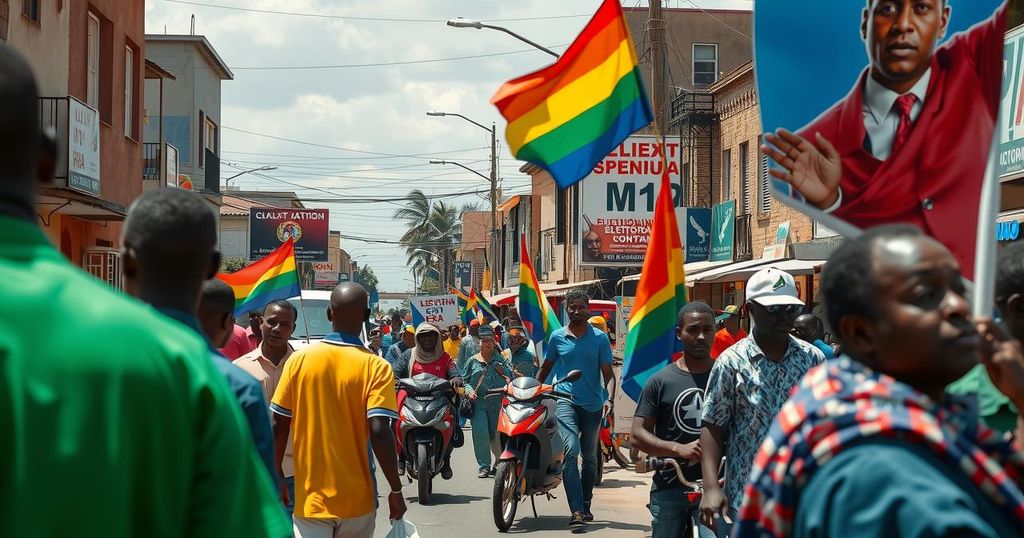Senegal Tensions Rise Ahead of Crucial Legislative Elections
Senegal is concluding a tense electoral campaign ahead of a key legislative election that will determine President Bassirou Diomaye Faye’s ability to implement his reform agenda. Voters will choose 165 assembly members, amid allegations of political violence and significant opposition presence hindering Faye’s plans. Both Faye and Ousmane Sonko were released from prison shortly before the election, following a political amnesty that raised questions about the stability of Senegalese democracy.
On the final day of an intense electoral campaign, Senegal is preparing for a critical legislative election scheduled for Sunday. This election is particularly significant as it will determine whether President Bassirou Diomaye Faye can implement his ambitious reform agenda. Voters will elect 165 assembly members, amid concerns that Faye’s party lacks a parliamentary majority to support his initiatives. Having won the presidency in March on an anti-establishment platform, Faye has since argued that the opposition’s control of parliament has obstructed his reform goals, which include initiatives to combat corruption and enhance the distribution of natural resources among the populace. To address this impasse, he dissolved the opposition-led parliament in September, prompting a snap election. The campaign period was marred by violent incidents, including clashes between rival party supporters, particularly evident in central Senegal. The ministry of the interior reported an incident where an opposition party’s headquarters was set ablaze in Dakar. Ousmane Sonko, the prime minister and a prominent opposition leader, condemned these attacks and called for supporters to act nonviolently, despite initially inciting a more aggressive sentiment. The political climate remains fraught as both Faye and Sonko were recently released from prison following a political amnesty. Their imprisonment had previously led to widespread protests and serious concerns over the country’s democratic stability, especially as the region grapples with political unrest and coups. With tensions high and memories of past violence fresh, the upcoming election is critical for the future of Senegalese democracy.
The political landscape in Senegal has been tense, particularly after President Bassirou Diomaye Faye’s election in March, where he championed an anti-establishment platform. This election marks a pivotal moment for the president, as he seeks to gain legislative support for his reform agenda amidst significant opposition influence in parliament. Underlying tensions further stem from previous unrest, including the violent protests following the arrests of Faye and Sonko, which raised alarms about the deterioration of democracy in a region known for its political instability. The upcoming election will not only impact Faye’s proposed reforms but will also test Senegal’s resilience as a democratic nation against the backdrop of a region experiencing numerous challenges to democratic governance. Recent incidents of violence among party supporters indicate a growing polarization in the political sphere, heightening the significance of this election as a referendum on both Faye’s leadership and the viability of the opposition.
The unfolding situation in Senegal highlights the critical nature of the upcoming legislative elections set for Sunday, which will determine the potential for President Faye to enact his planned reforms. With the current political climate marked by violence and division, the elections will serve as a litmus test for Senegal’s commitment to democratic principles in an increasingly volatile West African region. The outcome may lay the foundation for future governance and stability in Senegal, significantly influencing its democratic trajectory.
Original Source: apnews.com




Post Comment